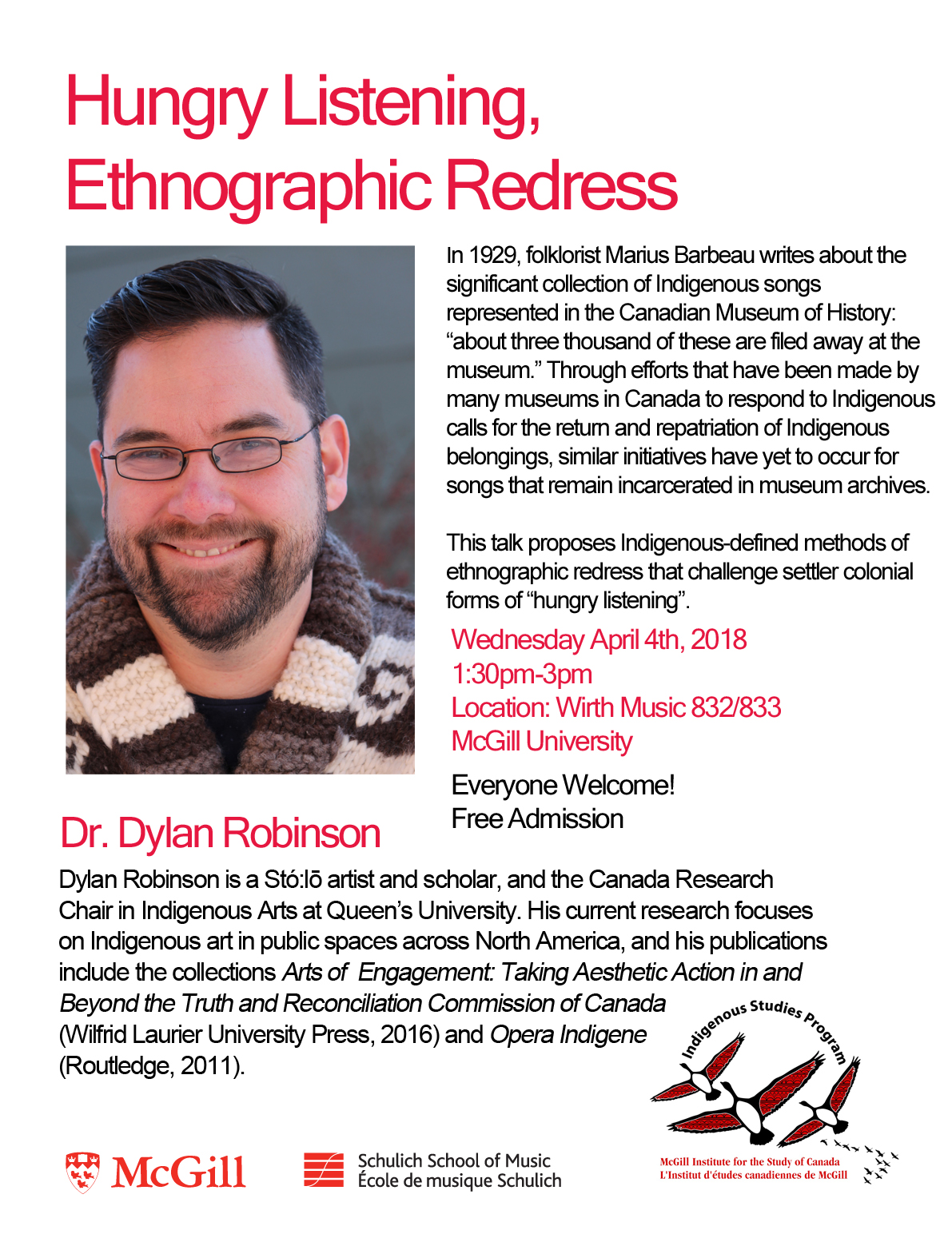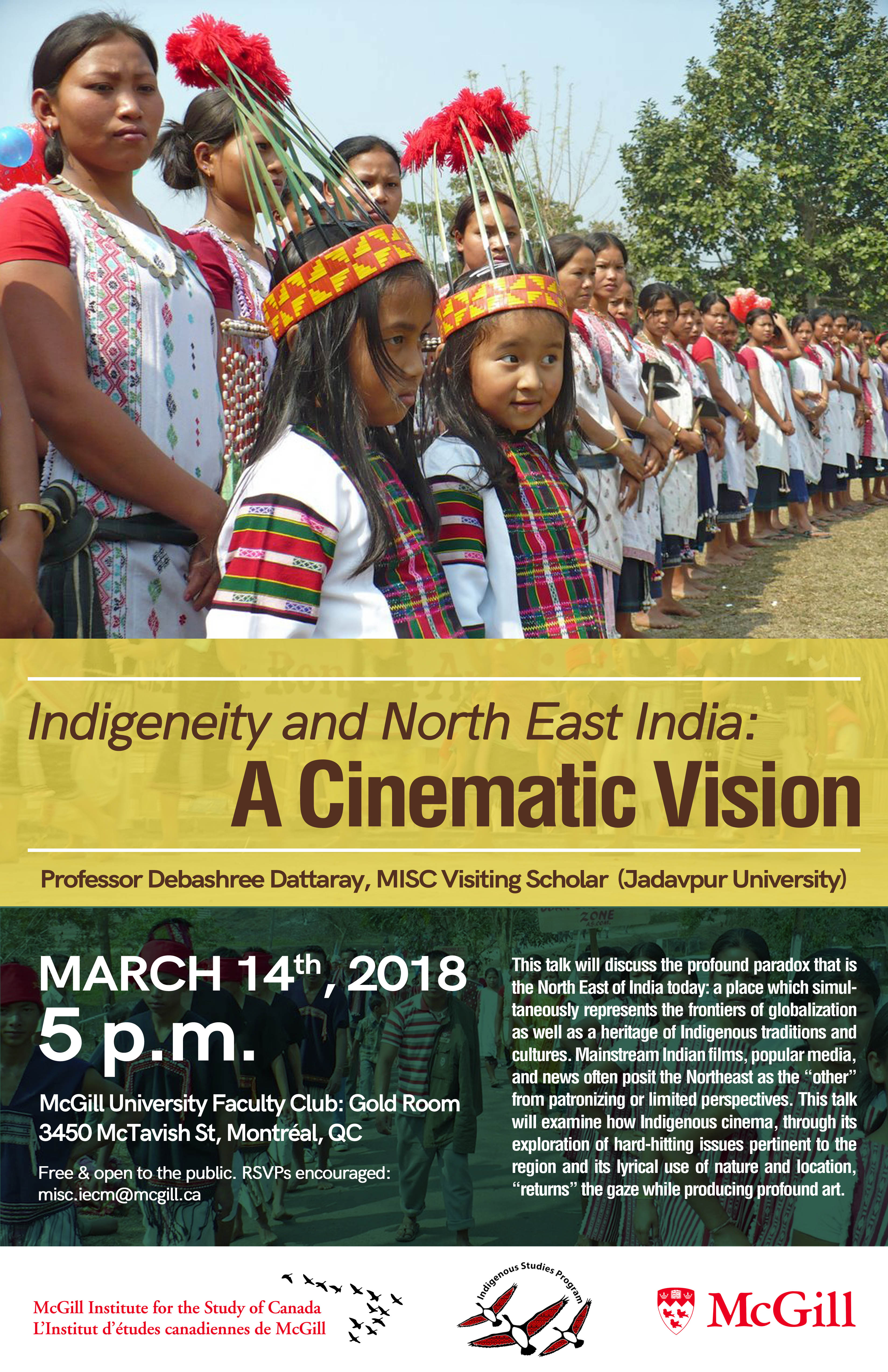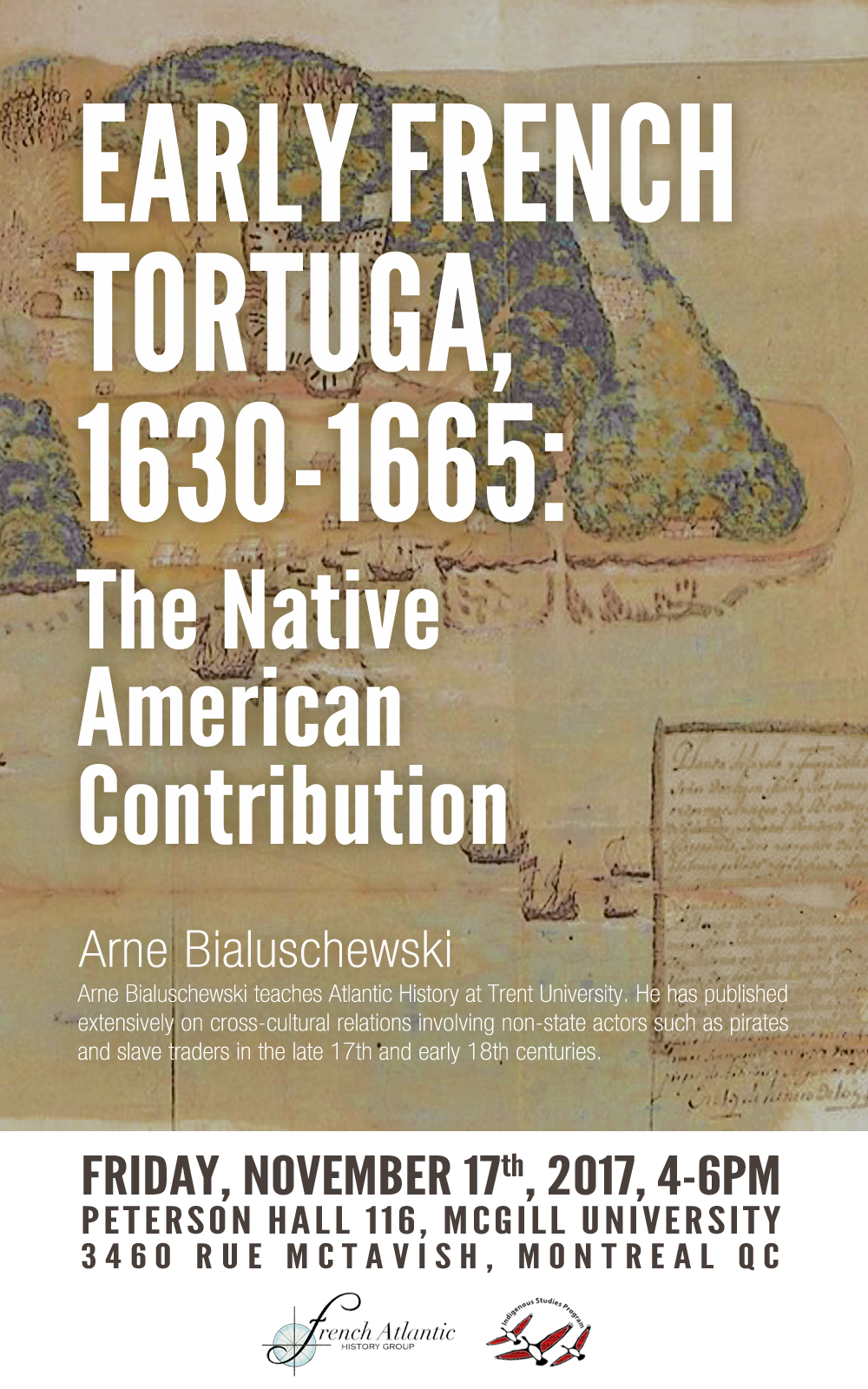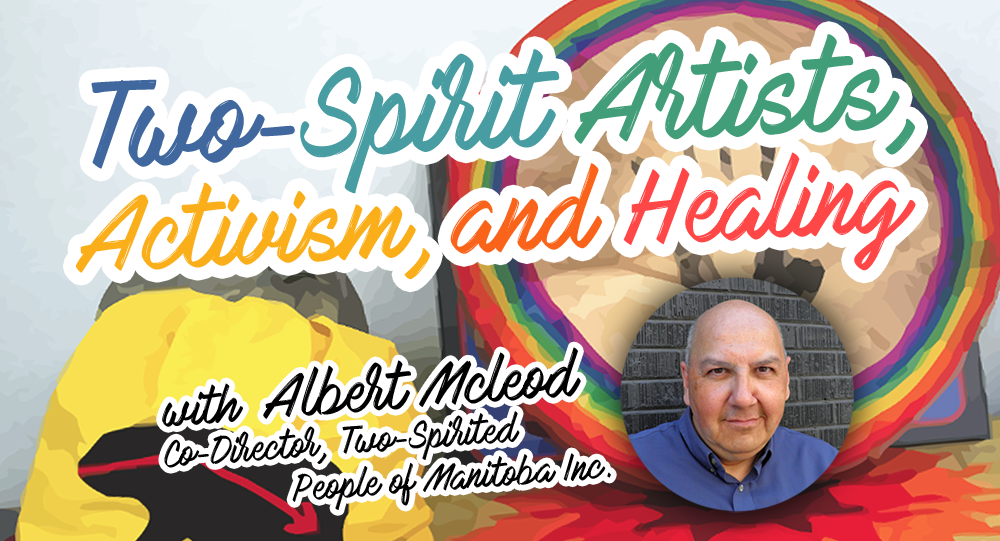2018
 November 8th, 2018: Origins, Interpretations, and Impacts: On the Use of Indigenous Imagery in North American Sports
November 8th, 2018: Origins, Interpretations, and Impacts: On the Use of Indigenous Imagery in North American Sports
C. Richard King gave a keynote on the history and impact of the usage of Indigenous imagery as mascotry in North American sports in the wake of the #ChangeTheName movement, which sought to have the name of McGill's men's sports teams changed.
C. Richard King is a professor and chair of Humanities, History and Social Sciences at Columbia College Chicago. His research concentrates on the racial politics of culture, especially the articulations of race and sport in post–Civil Rights America. Pushing beyond a black/white paradigm, his work has pushed for a comparative understanding of racialization, particularly in sport and media. Indigeneity, in particular, centers much of his scholarship. This has led him to interrogate the place of indigenous athletes in physical culture and to wrestle with the uses and understanding of Indianness and the ongoing struggles over mascots, team names, and appropriation in sport. He is the author/editor of several books, including "Team Spirits: The Native American Mascot Controversy" (a CHOICE 2001 Outstanding Academic Title), Native Athletes in Sport and Society, and most recently "Redskins: Insult and Brand".
 November 1st, 2018: Understanding Cultural Appropriation- Consequences and Strategies of Reclamation and Defiance
November 1st, 2018: Understanding Cultural Appropriation- Consequences and Strategies of Reclamation and Defiance
Debates about cultural appropriation have been rife in the past few years and often surface around Halloween... What is cultural appropriation? Who does it harm?
This panel was moderated by Tomas Jirousek (Kainai; SSMU Indigenous Affairs Commissioner). Our panelists were be Dr. Jennifer Guiliano, Dr. Rachel Zellars, and Stephen Puskas. A recording of the event is available here.
 September 25th, 2018: ᐃᓄᐃᑦ ᐊᕐᓇᐃᑦ ᐃᓱᒪᓂᕕ ᐊᒻᒪ ᓴᓇᙳᐊᒐᑦ –Inuit Women in Art
September 25th, 2018: ᐃᓄᐃᑦ ᐊᕐᓇᐃᑦ ᐃᓱᒪᓂᕕ ᐊᒻᒪ ᓴᓇᙳᐊᒐᑦ –Inuit Women in Art
This event was panel featuring some of the most distinguished contemporary Inuit women in the arts: Heather Igloliorte (ᓯᕈ ᐃᒡᓗᓕᐅᖅᑎ), Niap Saunders (ᓂᐊᑉ ᓴᓐᑐᔅ), Nina Segalowitz (ᓂᓇ ᓯᒐᓗᕕᑦᔅ), and Beatrice Deer (ᐱᐊᑐᐊᔅ ᑎᐅ). The panelist spoke about their artistic practice and work, and had a discussion with members of the audience. A full recording of the event is available here.
 April 12th, 2018: Land, Love and other Resistances: A Conversation between Nasrin Himada and Wanda Nanibush
April 12th, 2018: Land, Love and other Resistances: A Conversation between Nasrin Himada and Wanda Nanibush
Drew on parallels between land rights, love and resistances enacted through affect, these two writer, scholar, curator, makers find new paths through age old colonial problems.
Wanda Nanibush is an Anishinaabe-kwe curator, image and word warrior, and community organizer. Currently, she is the inaugural curator of Indigenous Art at the Art Gallery of Ontario. She holds a Master’s in Visual Studies from the University of Toronto where she has taught graduate courses. Her curatorial projects include Rita Letendre: Fire & Light (Art Gallery of Ontario), Toronto: Tributes + Tributaries, 1971-1989 (Art Gallery of Ontario), Sovereign Acts II (Leonard & Bina Ellen Art Gallery, Montreal), The Fifth World(Mendel Art Gallery, Saskatoon) and the award-winning KWE: Photography, Sculpture, Video and Performance by Rebecca Belmore (Justina M. Barnicke Gallery, Toronto).
Nasrin Himada is a Palestinian writer, editor, and curator based in Tio'tia:ke (Montréal), in Kanien'kehá:ka territory. Her writing on contemporary art has appeared in Canadian Art, C Magazine, Critical Signals, The Funambulist, Fuse Magazine, and MICE Magazine, among others. She is the co-editor of contemptorary.org.
 April 4th, 2018: Hungry Listening, Ethnographic Redress
April 4th, 2018: Hungry Listening, Ethnographic Redress
In 1929, folklorist Marius Barbeau writes about the significant collection of Indigenous songs represented in the Canadian Museum of History: “about three thousand of these are filed away at the museum.” Though efforts have been made by many museums in Canada to respond to Indigenous calls for the return and repatriation of Indigenous belongings, similar initiatives have yet to occur for songs that remain incarcerated in museum archives. This talk proposed Indigenous-defined methods of ethnographic redress that challenge settler colonial forms of “hungry listening”.
Dylan Robinson is a Stó:lō artist and scholar, and the Canada Research Chair in Indigenous Arts at Queen’s University. His current research focuses on Indigenous art in public spaces across North America, and his publications include the collections Arts of Engagement: Taking Aesthetic Action in and Beyond the Truth and Reconciliation Commission of Canada (Wilfrid Laurier University Press, 2016) and Opera Indigene (Routledge, 2011).
March 14th, 2018: Indigeneity and North East India: A Cinematic Vision
 In this talk, Professor Debashree Dattaray, MISC Visiting Scholar from Jadavpur University, discussed the profound paradox that is the North East of India today: a place which simultaneously represents the frontiers of globalization as well as a heritage of Indigenous traditions and cultures. Mainstream Indian films, popular media, and news more than often posit the Northeast as the “other” from patronizing, or limited, perspectives. This talk will examine how Indigenous cinema ‘returns’ the gaze while producing profound art, through its lyrical use of nature and locations and the discussion of hard-hitting issues pertinent to the region.
In this talk, Professor Debashree Dattaray, MISC Visiting Scholar from Jadavpur University, discussed the profound paradox that is the North East of India today: a place which simultaneously represents the frontiers of globalization as well as a heritage of Indigenous traditions and cultures. Mainstream Indian films, popular media, and news more than often posit the Northeast as the “other” from patronizing, or limited, perspectives. This talk will examine how Indigenous cinema ‘returns’ the gaze while producing profound art, through its lyrical use of nature and locations and the discussion of hard-hitting issues pertinent to the region.
 February 21st, 2018: Books That Matter-"Indigenous Writes"
February 21st, 2018: Books That Matter-"Indigenous Writes"
"Delgamuukw. Sixties Scoop. Bill C-31. Blood quantum. Appropriation. Two-Spirit. Tsilhqot’in. Pass and permit. Numbered Treaties. Terra nullius.”
Chelsea Vowel presented her national-bestseller Indigenous Writes, in which she opens an important dialogue about these (and more) concepts and the wider social beliefs associated with the relationship between Indigenous peoples and Canada.
Chelsea Vowel is Métis from manitow-sâkahikan (Lac Ste. Anne) Alberta, currently residing in amiskwaciwâskahikan (Edmonton). She is a public intellectual, writer, and educator whose work intersects language, gender, Métis self-determination, and resurgence.
 February 22nd, 2018: OTIPÊYIMISIW-ISKWÊWAK KIHCI-KÎSIKOHK: Métis in Space Liveshow
February 22nd, 2018: OTIPÊYIMISIW-ISKWÊWAK KIHCI-KÎSIKOHK: Métis in Space Liveshow
Molly Swain and Chelsea Vowel landed their spaceship at McGill for a live show of their podcast Métis in Space. They are "unapologetically Indigenous, unabashedly female & unblinkingly nerdy". Their podcast aims to review a sci-fi movie or television episode featuring Indigenous people, tropes and themes from a decolonial perspective. They screened an episode of a classic science fiction show gave some insightful commentary on the Indigenous tropes that came up in the plot.
Molly Swain is Métis from Calgary, living in amiskwaciwâskahikan and studying in the Faculty of Native Studies at the University of Alberta. She is a member of the Student Worker Action Group (SWAG), and tries to spread the joys of anarky wherever she goes. Her favourite science fiction is Star Trek: The Original Series, much to the chagrin of her family, who have resigned themselves to the fact that she's "a huge nerd." Follow her on Twitter @otipemsiw.
Chelsea Vowel is Métis from the Plains Cree and Michif speaking community of Lac Ste. Anne, Alberta. Capable of transforming into a pigeon, but vaguely embarrassed to do so, she holds a BEd and an LLB and is developing Cree language curricula at the University of Alberta. Her favourite Science Fiction is all the movies yet to be adapted from Octavia Butler's work. Also, Buffy the Vampire Slayer. Follow her on Twitter @apihtawikosisan and check out her blog.
 February 16th, 2018: Anti-Indigenous Racism and Justice in Saskatchewan: Challenges and Impediments to Reconciliation
February 16th, 2018: Anti-Indigenous Racism and Justice in Saskatchewan: Challenges and Impediments to Reconciliation
Across the country, the Stanley trial verdict has been the subject of intense discussion which gave rise to protest, calls for solidarity, and demands for changes to the justice system. Hostile debate, racist behaviour, and mounting tensions surrounding the case have, as a result, exposed large cracks in Canada's projected image of progress towards reconciliation, casting doubt on the existence of improved relations between settlers and Indigenous communities.
In an effort to address the anti-Indigenous sentiment that has surfaced following the verdict, Professor Veldon Coburn will open his CANS 306: Issues in Native Studies class with a public talk followed by a Q&A session on justice & race in Saskatchewan. All members of the public are welcome to attend; however, as space is limited, we recommend sending an RSVP to misc.iecm [at] mcgill.ca. Seating will otherwise be given on a first-come, first-served basis.
 February 7th, 2018: Erica Violet Lee's David A. Freedman Lecture
February 7th, 2018: Erica Violet Lee's David A. Freedman Lecture
The McGill Debating Union invited Erica Violet Lee as the David A. Freedman Speaker for 2018. Erica previewed some of her forthcoming work. Her lecture focused on respectability politics, indigenous resurgence, and pedagogy of introduction to Indigenous studies classes.
Erica Violet Lee is an Indigenous feminist, community organizer from Saskatoon, author of the blog Moontime Warrior, and currently a graduate student in Social Justice Education at University of Toronto.
 February 2nd, 2018: Biopolitics and Beyond - New Directions in Indigenous Studies
February 2nd, 2018: Biopolitics and Beyond - New Directions in Indigenous Studies
From climate change, to pipeline protests and environmental justice movements, to conceptualizations of kinship with living and non-living beings, emerging scholarship from Indigenous Studies is broadening visions of how to live in the twenty-first century. This keynote lecture and panel discussion featured the work of scholars who are pushing the boundaries of science and technology studies.
Lecture: "Caretaking Relations, Not American Dreaming: #IdleNoMore, #BlackLivesMatter, and #NoDAPL"
Keynote Speaker: Dr. Kim TallBear, Associate Professor, Faculty of Native Studies, University of Alberta, and Canada Research Chair in Indigenous Peoples, Technoscience & Environment
Panellists:
Jennifer Brown
Rico Chenyek
Kristen Simmons
Moderated by Rosanna Dent, organizer.
Find more information about the speakers on the event page here.
2017
 November 17th, 2017: "Early French Tortuga, 1630-1665: The Native American Contribution"
November 17th, 2017: "Early French Tortuga, 1630-1665: The Native American Contribution"
This talk highlighted Dr. Arne Bialuschewski's most recent research on how the relationship between buccaneers and indigenous groups in the early French Tortuga has played a role in shaping the colonial world, both culturally and politically.
Dr. Bialuschewski teaches Atlantic History at Trent University. He has published extensively on cross-cultural relations involving non-state actors such as pirates and slave traders in the late 17th and early 18th centuries. His latest published work, an Ethnohistory issue titled "Native American Slavery in the Seventeenth Century", sheds new light on the role of Native American slavery in the development of colonial economies.
 November 7th, 2017 : "Two-Spirit Artists, Activism, and Healing"
November 7th, 2017 : "Two-Spirit Artists, Activism, and Healing"
This was a presentation by Albert McLeod aimed to shed light upon the fundamentally different ways in which Indigenous—and, in particular, Ojibwe peoples—conceived their identities prior to European contact, and how these ways of being were impacted by colonial measures. It focused specifically on gender identities while also exploring the work of various Two-Spirit artists, McLeod recounted the history, journey, vision, and progress of the indigenous LGBTQ2+ rights movement.
Albert McLeod is a Status Indian with ancestry from Nisichawayasihk Cree Nation and the Metis community of Norway House in northern Manitoba. He has over thirty years of experience as a human rights activist and is one of the directors of the Two-Spirited People of Manitoba. Read more about his work on his website.
 February 24th, 2017: "The Colonial Problem: An Indigenous Perspective on Crime and Injustice in Canada"
February 24th, 2017: "The Colonial Problem: An Indigenous Perspective on Crime and Injustice in Canada"
The Indigenous Studies program hosted a presentation and book launch with author and criminologist Lisa Monchalin. Dr. Monchalin received a Doctorate in Criminology from the University of Ottawa in 2012 and is the first Indigenous woman in Canada to hold a Ph.D. in Criminology.
Dr. Monchalin recently published her first sole-authored book of the same name as her presentation published by the University of Toronto Press. She speaks nationally and internationally on her academic work in an effort to effect change and seek justice for Indigenous peoples. This includes her international book tour of "The Colonial Problem".
January 19th, 2016: We Can't Make the Same Mistake Screening
Presented by the School of Social Work to welcome Dr. Cindy Blackstock the film "We Can't Make the Same Mistake Twice" by Abenaki filmmaker Alanis Obomsawin’s was screened to a full-house at Cinema du Parc.
The film documents the nine-year legal saga pitting the First Nations Child and Family Caring Society of Canada and the Assembly of First Nations against the Canadian government. Arguing that Indigenous children on reserves and in Yukon received subpar services due to the government’s discriminatory practices, the plaintiffs eventually won the trial in 2016.
After the film there was a panel discussion moderated by Allan Downey, Dakelh, Nak’azdli Whut’en, Assistant Professor in the Department of History and Classical Studies, and Chair of the Indigenous Studies Program. Panelists included: Amal Elsana Alhjooj, PhD Candidate, School of Social Work & Executive Director, International Community Action Network; Carlee Loft, Kanien'kehá:ka, 3rd Year, Psychology major with a double minor in Indigenous Studies and Behavioural Science; Anna McIntosh, Year 3, B.C.L./LL.B. program, Faculty of Law; and Christian Quequish, Saulteaux, Year 3, Major Political Science, Minor Indigenous Studies.
2016
 September 19th, 2016: The Pass System Screening
September 19th, 2016: The Pass System Screening

The Indigenous Studies Program, in partnership with First People's House, the McGill Social Equity and Diversity Education Office, the Department of History, and the Faculty of Law, presented a free public screening of Alex Williams' acclaimed documentary, The Pass System. Shedding light upon our nation's hidden history of racial segregation, the film captures stories of resistance against the Canadian government, which for over 60 years, denied Indigenous peoples the basic freedom to leave their reserves without a pass.
The screening was followed by a lively panel discussion featuring Alex Williams, Winona Wheeler, Katsi'tsakwas Ellen Gabriel, Orenda Boucher-Curotte, Sandra-Lynn Kahsennano:ron Leclaire, and Allan Downey as moderator. Photos are available here.
2014
 December 10th, 2014: Launch of the Indigenous Studies Program
December 10th, 2014: Launch of the Indigenous Studies Program
With the collaboration of the McGill Institute for the Study of Canada and First People's House, a special event was organized to mark the creation of the Indigenous Studies Program at McGill. Indigenous leaders featured at the launch included Elder Jean Stevenson of the Peguis First Nation, Montreal-based pow wow group the Buffalo Hat Singers, and Kahnawake rapper Will E. Skandalz. Photos may be viewed here.
